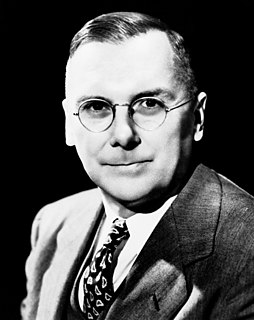A Quote by Steve Case
Today, National Geographic has a membership side with a magazine and some television side, and they generate about a billion dollars in revenue, and they're profitable. And so at the end of the year they have some bottom line profit which they can then reinvest, because they're running it as a not-for-profit in charitable endeavors.
Related Quotes
Many entrepreneurs embrace profit-making and charitable purposes. Companies such as shoes seller Toms and eyeglass firm Warby Parker sell products at a profit with a pledge to devote part of their earnings to the needy. The number of for-profit businesses with a built-in charitable dimension has proliferated.
Unlike public universities and private, not-for-profit colleges, for-profit schools are owned by revenue-seeking businesses often more intent on boosting their bottom line than educating their students. They use hard-sell tactics to recruit prospective students, and veterans have become particular targets.
We need to reverse three centuries of walling the for-profit and non-profit sectors off from one another. When you think for-profit and non-profit, you most often think of entities with either zero social return or zero return on capital and zero social return. Clearly, there's some opportunity in the spectrum between those extremes. What's missing is the for-profit finance industry coming in to that area. Look at the enormous diversity of the for-profit financial industry as opposed to monolithic nature of the non-profit world; it's quite astonishing.
During the fiscal year ending in 1861, expenses of the federal government had been $67 million. After the first year of armed conflict they were $475 million and, by 1865, had risen to one billion, three-hundred million dollars. On the income side of the ledger, taxes covered only about eleven per cent of that figure. By the end of the war, the deficit had risen to $2.61 billion. That money had to come from somewhere.
I know that some knowledgeable people fear that although we might be willing to spend a couple of billion dollars in 1958, because we still remember the humiliation of Sputnik last October, next year we will be so preoccupied by color television, or new-style cars, or the beginning of another national election, that we will be unwilling to pay another year's installment on our space conquest bill. For that to happen well, I'd just as soon we didn't start.
The [liberals] consider profits as objectionable. The very existence of profits is in their eyes a proof that wage rates could be raised without harm to anybody. They speak of profit without dealing with loss. Profit and loss are the instruments by means of which the consumers keep a tight rein on all business activities. A profitable enterprise tends to expand; an unprofitable one tends to shrink. The elimination of profit renders production rigid and abolishes the consumer's control.



































